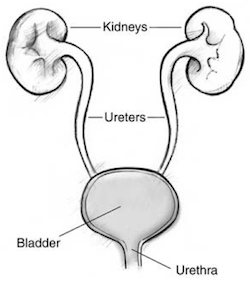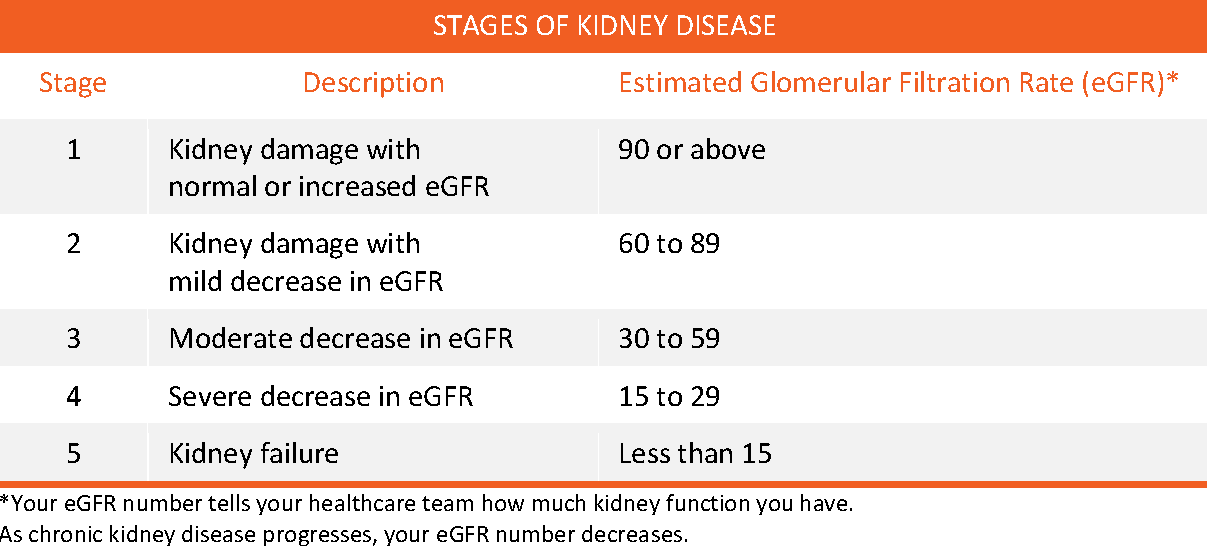Living with Stage 4 Chronic Kidney Disease
- 0About this program
- 1What Is CKD and What Can I Do?
- 2Testing and Management
- 3Protecting Your Kidney Health
- 4Coping: Handling Emotions and Stress
- 5Protecting Your Heart If You Have CKD
- 6Good Nutrition and Kidney Disease
- 7Making Healthy Lifestyle Choices
- 8Managing Complications of Advanced CKD
- 9Treatment of Kidney Failure
- 10Understanding Kidney Transplantation
- 11Understanding Dialysis
- 12Working With Your Healthcare Team
- 0About this program
- 1What Is CKD and What Can I Do?
- 2Testing and Management
- 3Protecting Your Kidney Health
- 4Coping: Handling Emotions and Stress
- 5Protecting Your Heart If You Have CKD
- 6Good Nutrition and Kidney Disease
- 7Making Healthy Lifestyle Choices
- 8Managing Complications of Advanced CKD
- 9Treatment of Kidney Failure
- 10Understanding Kidney Transplantation
- 11Understanding Dialysis
- 12Working With Your Healthcare Team
Content on HealthUnlocked does not replace the relationship between you and doctors or other healthcare professionals nor the advice you receive from them.
Never delay seeking advice or dialling emergency services because of something that you have read on HealthUnlocked.
What Is CKD and What Can I Do?
What are the kidneys and what do they do?

You have two kidneys. Each kidney is about the size of your fist. They are located near the middle of your back, just below the rib cage. Healthy kidneys do many important jobs. For example, kidneys:
- Remove waste products and extra water from your body
- Help control blood pressure
- Help make red blood cells
- Help keep bones healthy
Think of your kidneys as a coffee filter. When you make coffee, the filter keeps the coffee grains, but allows water to pass through. Your kidneys do something similar. They keep the things you needinside your body, but filter out things you don’t need.
Each of your kidneys has about 1.5 million filters called nephrons. Nephrons remove wastes and extra fluid from your blood in the form of urine. The urine flows through two tubes, called ureters, to the bladder. The urine is stored there until you go to the bathroom. The wastes come from the breakdown of what you eat or drink, medicine you take, plus normal muscle activity.

What is chronic kidney disease?
Chronic kidney disease (CKD) means the kidneys are damaged. Damaged kidneys are not able to keep you healthy. They cannot filter your blood well enough, and they cannot do their other jobs as well as they should. Kidney disease does not happen overnight. It happens slowly, and in stages. Most people in the early stages do not have any symptoms. They may not know that anything is wrong. If kidney disease gets worse, wastes can build to high levels in your blood and make you feel sick. This is why many people mi ht not know they have CKD until it is more advanced.
If you have CKD stage 4 you may already notice that you:
- feel more tired and have less energy
- have trouble concentrating
- have a poor appetite
- have trouble sleeping
- have muscle cramping at night
- have swollen feet and ankles
- have puffiness around your eyes, especially in the morning
- have dry, itchy skin
As CKD gets worse, you may also get other problems like high blood pressure, a low red blood cell count (anemia), weak bones, poor nutrition, and nerve damage. You will also have a higher chance of getting heart and blood vessel disease. If CKD keeps getting worse, it also can lead to kidney failure. This means your kidneys no longer work well enough to keep you alive, and you need a treatment like dialysis or a kidney transplant. Overall, kidney transplantation is the recommended treatment option for most people with kidney failure. However, people on dialysis can also have full and happy lives.
You can watch the following video for an overview of how kidneys work and what is CKD:
What does stage 4 CKD mean for me?
There are five stages of kidney disease. Your clinician knows your stage of kidney disease based on the presence of kidney damage and your estimated glomerular filtration rate (eGFR), which is a measure of your kidney function. Your treatment is based on your stage of kidney disease.

At stage 4 CKD, there’s enough kidney damage to cause a severe loss of kidney function, with an eGFR in the range of 15 – 29. At this stage, it is very important to slow the loss of kidney function by following your treatment plan and taking care of other health problems. It is also likely that someone with stage 4 CKD will need dialysis or a kidney transplant in the future.
Working with your care team
Good healthcare is always a team effort - especially for people with CKD. You should remain engaged with your primary care clinician. Some questions you can ask your primary care clinician, if you have not discussed them with anyone, are as follows:
Do I need a referral to a nephrologist?
If I am seeing a nephrologist, how will the both of you remain updated on my condition?
What changes or symptoms do I need to watch for and tell you about?
Do I need any new treatments? If so, what are my options?
When and how should I prepare for any new treatments?
If you have stage 4 CKD, your primary clinician can refer you to a nephrologist, also known as a “kidney doctor.” A nephrologist is a doctor who has advanced training in treating kidney disease. There are also other members of a nephrology healthcare team, including a nephrology nurse, nephrology advanced practitioner, renal dietitian, and a nephrology social worker. These members of the healthcare team also have specialized training in kidney disease. Some questions you can ask a nephrology clinician include:
What is wrong with my kidneys?
How severe is my kidney disease?
What can I do about it?
Should I visit a transplant center for an evaluation?
What are my other treatment options?
When and how should I prepare for treatment?
How will both you and my primary care clinician stay updated on my condition?
Coping with emotions and finding support
Living with any chronic disease such as CKD can emotionally challenging. Learning about a new diagnosis is also hard. It is very common to feel sad, scared, frustrated or angry. Having people to turn to for support can be a great help. Do not be afraid to tell others what you are feeling and to ask for help and support when needed. Different kinds of people can give emotional support. They can be family and friends, a co-worker, a spiritual mentor, or members of your healthcare team.
Chronic diseases such as CKD can also bring physical challenges, so, don't be afraid to seek assistance from family or friends; they want to help.
You can speak to someone who is living with the same disease. They can share their experiences and offer advice from a shared perspective (also known as peer support). You can ask your healthcare team for help finding peer support or contact an organization such as the National Kidney Foundation (1.855.NKF.CARES (1.855.653.2273), or nkfcares@kidney.org).
Online communities are also available for people to share their experiences, ask questions and get answers: https://www.kidney.org/online-communities
What can I do now?
If you have stage 4 CKD and are not seeing a nephrologist, then contact your primary care clinician, ask for a nephrology referral, and then make an appointment. Studies show that an early nephrology referral can help people’s health and survival over the long term.
You can also ask about visiting a transplant center for an evaluation. Talking to other people who went through the kidney transplant process can also help. If dialysis is an option, you can ask about visiting a dialysis center or talking to other people get dialysis to share their experiences. You can ask your healthcare team for help with this, or contact an organization such as the National Kidney Foundation. (1.855.NKF.CARES (1.855.653.2273), or nkfcares@kidney.org
Any steps you can take now to improve or maintain your health can help you over the long term. Following your treatment plan is important. You should also do the following:
Follow a healthier lifestyle that includes a proper diet and adequate physical activity
Avoid harmful habits such as smoking
Control how much salt is in your diet
Avoid certain pain medicines known as NSAIDs that can harm the kidneys
Learn about treatment options and to be prepared if your condition changes
If you and your healthcare team decide that you'll be needing hemodialysis in the future, then ask about how to take care of your veins in the meantime.
Remember to tell yourself and your loved ones that as the disease progresses over time, a lot can be done to manage it.
Content on HealthUnlocked does not replace the relationship between you and doctors or other healthcare professionals nor the advice you receive from them.
Never delay seeking advice or dialling emergency services because of something that you have read on HealthUnlocked.